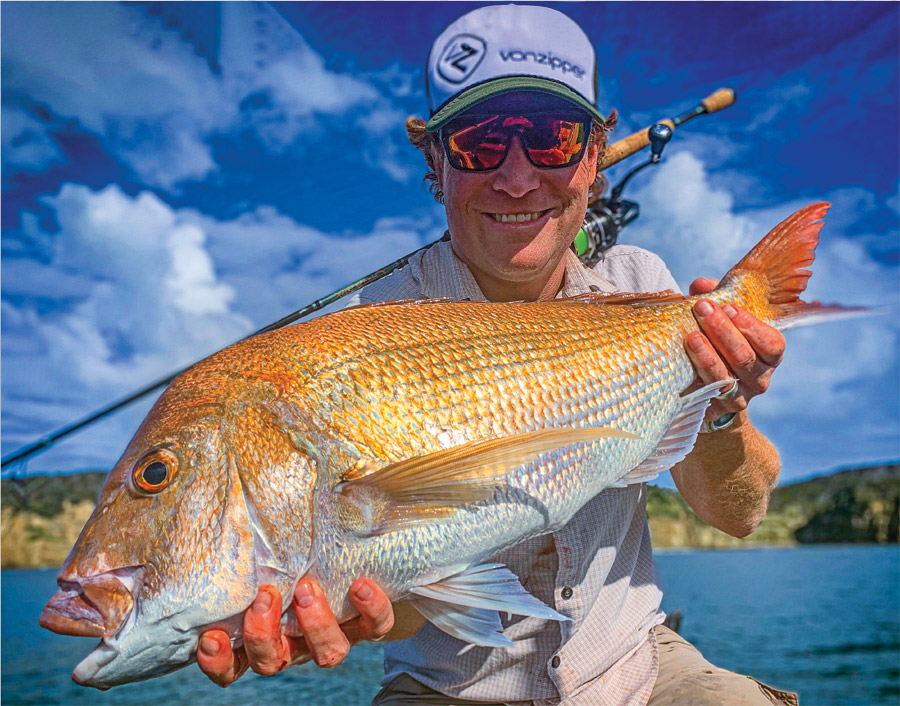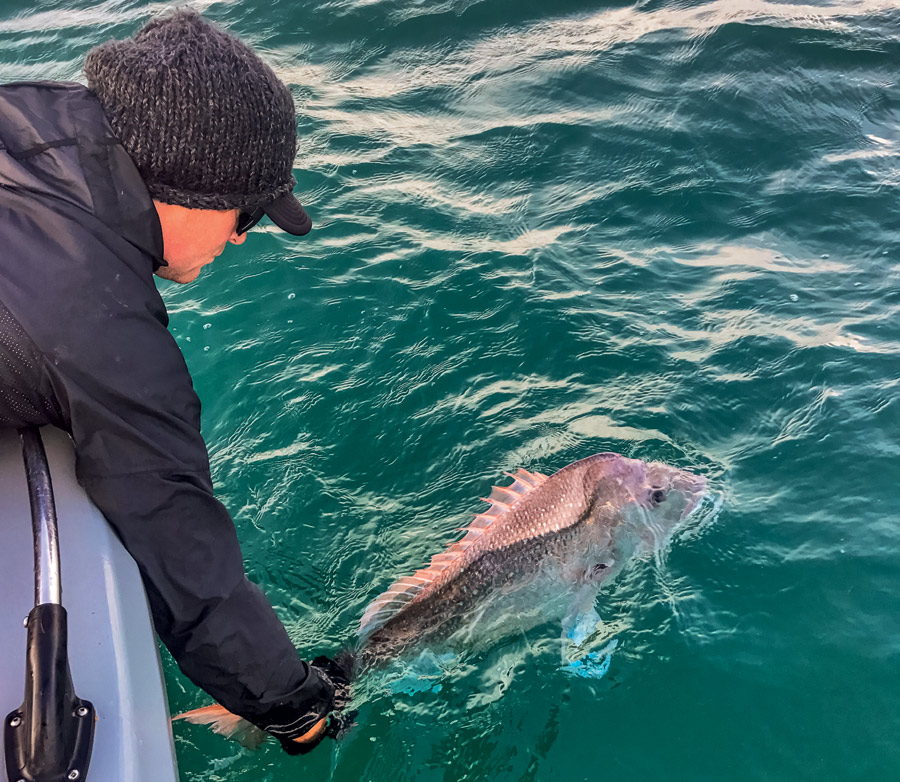How to Soft-bait Fish The Wash
Wash fishing has become increasingly popular around New Zealand, and the technique has opened up a whole new challenge for people looking to target big fish close to structure. Jack Lusk looks at soft-baiting the inter-tidal zone…
The wash is anywhere the water hits the rocks. It’s a high activity zone where the wave action generates plenty of opportunities for fish to feed, darting out from the cover of the rocks to ambush small fish, crustaceans, and other food sources washed down from the tidal zone. People who rock fish know how close and shallow fish—even very big fish—live, so it’s no surprise the wash is a great way to target snapper and other predators. Just about anywhere the waves or tidal surge hits a rocky ledge, you’re going to find fish. Dragging them out of the snags is another matter!
Snapper and other fish do live and feed in surprisingly shallow water, but it can be pretty tough on your tacklebox to target them. I like to look on the chart for a good bit of depth. 4-5m or deeper, dropping off quite quickly, generally gives you the best chance of stopping the freight trains you hook when you cast into danger. I like a bit of wash and surge, but not too much—it’s ticklish work getting the boat in close enough to make a good cast, and on days with big waves it’s often just too dangerous. On the other end of the scale, completely flat conditions often don’t seem to produce the goods; a bit of surge and motion seems to get the fish biting. That said, when you’re starting out with wash fishing it’s better to go on a reasonably flat day: the current and surge close to the rocks takes a bit of getting used to, and the ideal practice for your boat handling is in good conditions.

Islands like Kawau in the Hauraki Gulf offer extensive areas of shallow foul and wash fishing for snapper.
Getting in close
I think wash fishing is a team sport. One person drives, the other casts, and you switch roles every little while. It’s never sensible to be messing about in a boat close to the bricks, so having someone in full control of the vessel is important. If you hook up you generally need to be motoring out of the snags pretty fast in any case, so having the boat idling with someone at the wheel is ideal. I always have the boat idling when I’m wash fishing, and I haven’t found it spooks the fish. Nose in to the rocks as quietly as possible, taking care to eyeball the chart and have a spotter up the front to look for hidden rocks. Then, turn the boat around so you’re facing out to sea before you cast.
How it works
Whenever I take someone new to fish the wash, they’re surprised at how close you need to cast. I aim to land a metre from the edge, or even closer. The lure falls down the face, and often the fish take
it just below the surface. They must be right on the edge, looking up—and they can’t resist something delicious-looking splashing into the strike zone.
It’s a really tough challenge not to get snagged with this type of fishing. You need to be very precise and get in control of your line immediately when it lands. I like to very slowly retrieve so the lure is coming back toward the boat, without dragging it beyond the fish too fast. You will lose some gear, but as you get used to staying in contact you can minimise your snags and maximise your time with your lure in the right place. It demands good cast control not to fire the lure up onto the bricks, or land too short. There’s no doubt that more time in the true wash zone results in more fish.
When you’re soft-baiting over sand, you can run with light tackle, and light drag. The wash zone is a bit different, and definitely more exacting. You can’t let the fish run so far—they’re only metres from the rocks, and the bottom isn’t far away either. You need to be able to tie very reliable knots, and you might want to bump your leader up to 25 or even 30lb. That gives you a bit of insurance when you hook something big and you need to lock up or lose out.

The beauty about fishing the wash, the fish do not suffer from barotrauma and can be released safely if you choose to do so.
Quick Tips
• Check your chart or Google Earth for the likeliest looking spots
• Safety first in close – always have the boat pointing at your escape route
• Cast to within a metre of the rock face
• Stay in touch with your line to prevent snags
• Work soft-baits slowly away from the edge
• Fish with the drag you dare
• Bump up your trace weight to 25 or even 30lbs
• Check trace regularly for abrasion and nicks
|
|
|
Fishing Reports Visit Reports
Canterbury Fishing Report - 04/04/24
Fish galore! Coming off the back of Easter Weekend and with some very nice weather... Read More >
Raglan Fishing Report - 04/04/24
Excellent snapper action There is some excellent autumn snapper fishing straight out and up the... Read More >
Bream Bay Fishing Report - 04/04/24
Whangarei Harbour fishing well Like the weather, the fishing has been patchy throughout Bream Bay... Read More >
Hauraki Gulf Fishing Report - 04/04/24
Party time! Inshore fishing and offshore fishing are on now. It’s that perfect time of... Read More >





Comments